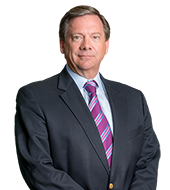The State of Capitalism in the 21st Century
On February 1, 2016, K&L Gates LLP, The Washington Times and the U.S. Chamber of Commerce held a symposium entitled “Capitalism in the 21st Century.” The event explored emerging corporate governance considerations such as sustainability and income inequality, as well as the relationship between financial regulation and economic growth. The dialogue between the participants, which spanned a broad ideological spectrum, was particularly timely given the intense debate in the 2016 U.S. presidential election about the appropriate degree of financial market regulation. The outcome of this election will surely have a significant impact on the future trajectory on both sets of issues.
Additionally, long-held assumptions about the responsibly of corporate officers and directors to optimize shareholder value are being challenged at a time when financial regulators are focused on managing market activity. Emerging concepts such as sustainability and systemic risk are quickly challenging traditional concepts such as free market capitalism and laissez-faire market regulation. Key questions that will continue to be debated are: What duties do corporate officers and directors have, and to whom? What role can regulators play in the efficient allocation of scare capital once thought to be the exclusive role of market forces? Capitalism in the 21st Century explored many of these critical issues. A brief summary of the event follows.
The Role of Corporate Officers and Directors
Panel I explored the role of corporations in the 21st century, with a particular emphasis on whether officers and directors should prioritize maximizing shareholder value or focus on benefitting a broader set of stakeholders. One participant used Wal-Mart Stores, Inc.’s increase in its minimum pay as support for the proposition that corporations benefit when officers and directors seek to benefit a wider range of stakeholders. Another participant suggested a similar sentiment that sustainability questions have become business questions. On the other hand, participants discussed the enormous wealth created by corporations and placed blame on “over regulation” for the reduction since 1996 of the number of publicly traded companies. To support this point, members of the panel noted corporate executive Michael Dell’s statement after taking Dell Computers private that he would never again run a public company in the United States.
Impact of Short-termism
Participants also discussed the issue of “short-termism,” which is the tendency of corporate managers to make decisions that are primarily driven by quarterly earnings expectations. A number of participants seemed to agree that short-termism has become a prevailing issue and explained that this mentality removes the benefit of skilled officers. A panelist challenged this concept by providing Amazon.com, Inc.’s high valuation — in light of relative low profits — as an example of the market operating on a longer horizon. In response, however, the panel generally agreed that Amazon is the exception rather than the rule.
The Dodd-Frank Act and U.S. Competitiveness
Panel II explored impact of the Dodd-Frank Wall Street Reform and Consumer Protection Act of 2010 (“Dodd-Frank”) on U.S. competitiveness. Participants noted that Dodd-Frank revised most areas of the nation’s financial regulatory regime within a 14-month period, which a panelist said is not enough time to get it right, leaving unprecedented discretion to regulatory agencies. The panel also discussed several reports on U.S. capital markets competitiveness (i.e. the U.S. Treasury’s Blueprint for a Modernized Financial Regulatory Structure, Bloomberg/Schumer, a U.S. Chamber of Commerce report and others) and explored concerns about U.S. competitiveness that arose after enactment of the Sarbanes-Oxley Act. These reports all made similar policy recommendations: (1) Move toward a “principles-based” regulatory system; (2) merge the Commodity Futures Trading Commission with the Securities Exchange Commission; and (3) consolidate the banking regulators. Of these recommendations, a panelist noted that other than abolishing OTS, Dodd-Frank failed to implement most of the other recommendations, which remain relevant going forward.
Prudential Regulation of Non-banks
The panel also addressed the movement toward prudential regulation beyond banks to the entire financial industry. The participants seemed to agree that the imposition of bank-like prudential regulation, such as stress tests and living wills, on asset managers is an attempt by the SEC to protect its regulatory jurisdiction from the Financial Stability Oversight Council. The panel discussed the proper dynamic for effective regulation. During this discussion, a participant asserted that risk cannot be eliminated from capital markets. Panelists then turned to a discussion about the trend of international financial regulation toward prudential regulation and cited as an example the Financial Stability Board’s proposal that the investment management industry be regulated based on size. Participants generally agreed that it makes sense to consider size when assessing risk concerning banks but not when it comes to assessing risk of asset managers. During this discussion, a panelist noted that the Systemically Important Financial Institution designation had been designed to be considered on the basis of interconnectedness and leverage, as opposed to size.
Conclusion
As legislative bodies around the world address these evolving concepts, proactive engagement with policymakers will be essential to the outcome. This is particularly true with regards to the changing landscape for corporate officers and directors and as financial regulators seeks to manage financial market activity.
Panel I: The Emerging Role of Corporate Officers and Directors — “Should their focus be on optimizing shareholder value, sustainability, global warming, income inequality, diversity or all of the above?”
Stephen Moore (Moderator), Washington Times Economic Policy Columnist
The Honorable Bart Gordon, Partner, K&L Gates
Tom Quaadman, Senior Vice President, U.S. Chamber Center for Capital Markets Competitiveness
Damon Silvers, Director of Policy & Special Counsel, AFL-CIO
Panel II: “Can Keynes’ animal spirits’ be tamed? Should they be? If so, at what cost?”
Dan Crowley (Moderator), Partner, K&L Gates
Jeff Brown, SVP, The Charles Schwab Corporation
Andres Gil, Director, U.S. Chamber Center for Capital Markets Competitiveness
James Segel, Executive Director, Boston Asset Management Association
This publication/newsletter is for informational purposes and does not contain or convey legal advice. The information herein should not be used or relied upon in regard to any particular facts or circumstances without first consulting a lawyer. Any views expressed herein are those of the author(s) and not necessarily those of the law firm's clients.






